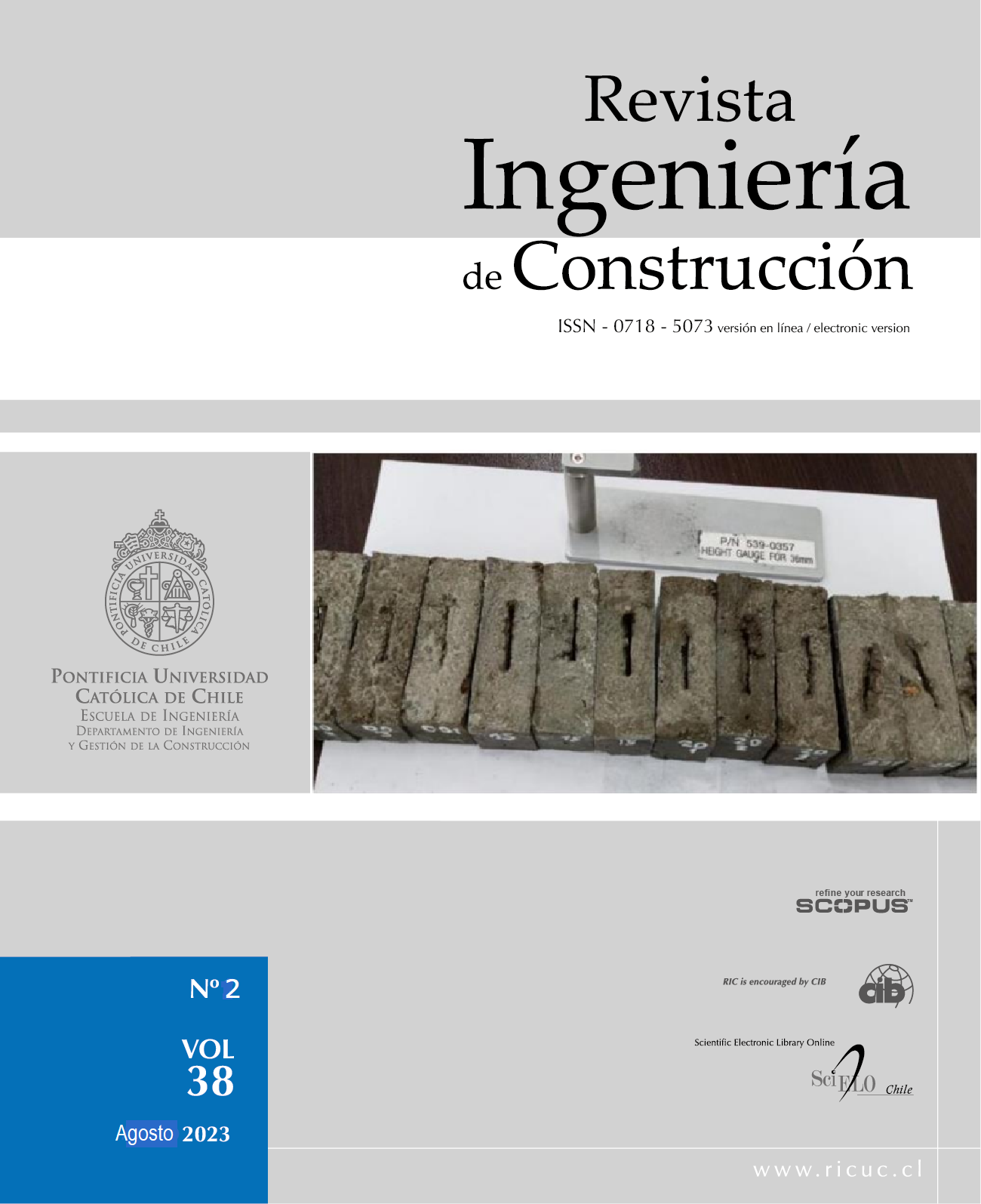Contribution of lysinibacillus sphaericus to crack repairing and compressive strength in durable concrete
DOI:
https://doi.org/10.7764/RIC.00064.21Keywords:
concrete self-repair, calcite precipitation, bacterial concrete, Lysinibacillus sphaericus, bacterial cultureAbstract
Concrete is a material of massive use due to its strength and durability. However, it presents post-concreting anomalies that cause damage to structures, partially or totally, interrupting their service and reducing their designed useful life. The corrective maintenance is an anthropogenic intervention, which demands the use of epoxy additives, resins, tools, equipment and techniques that represent unforeseen costs, labor risks and environmental impact. In response is an anthropogenic, CaCO3 precipitating bacteria into concrete by biomineralization. This article seeks to determine the influence of Lysinibacillus sphaericus on the Compressive strength and self-repair of concrete f'c=350kg/cm2, previously carrying out tests for aggregates and culture media. The preparation of ABC concrete (Bacterial additive for concrete) in doses of 0, 15, 20 and 25ml/m3 of mix, the design of standard concrete with an A/C ratio of 0.43. At 28 days of setting, it reached a Compressive strength of 105% for the standard concrete, and the best strength obtained was by incorporating 25ml/m3, improving by 16% compared to the standard concrete. After 14 days of curing, SEM images showed 69% self-repair of the cracks.


